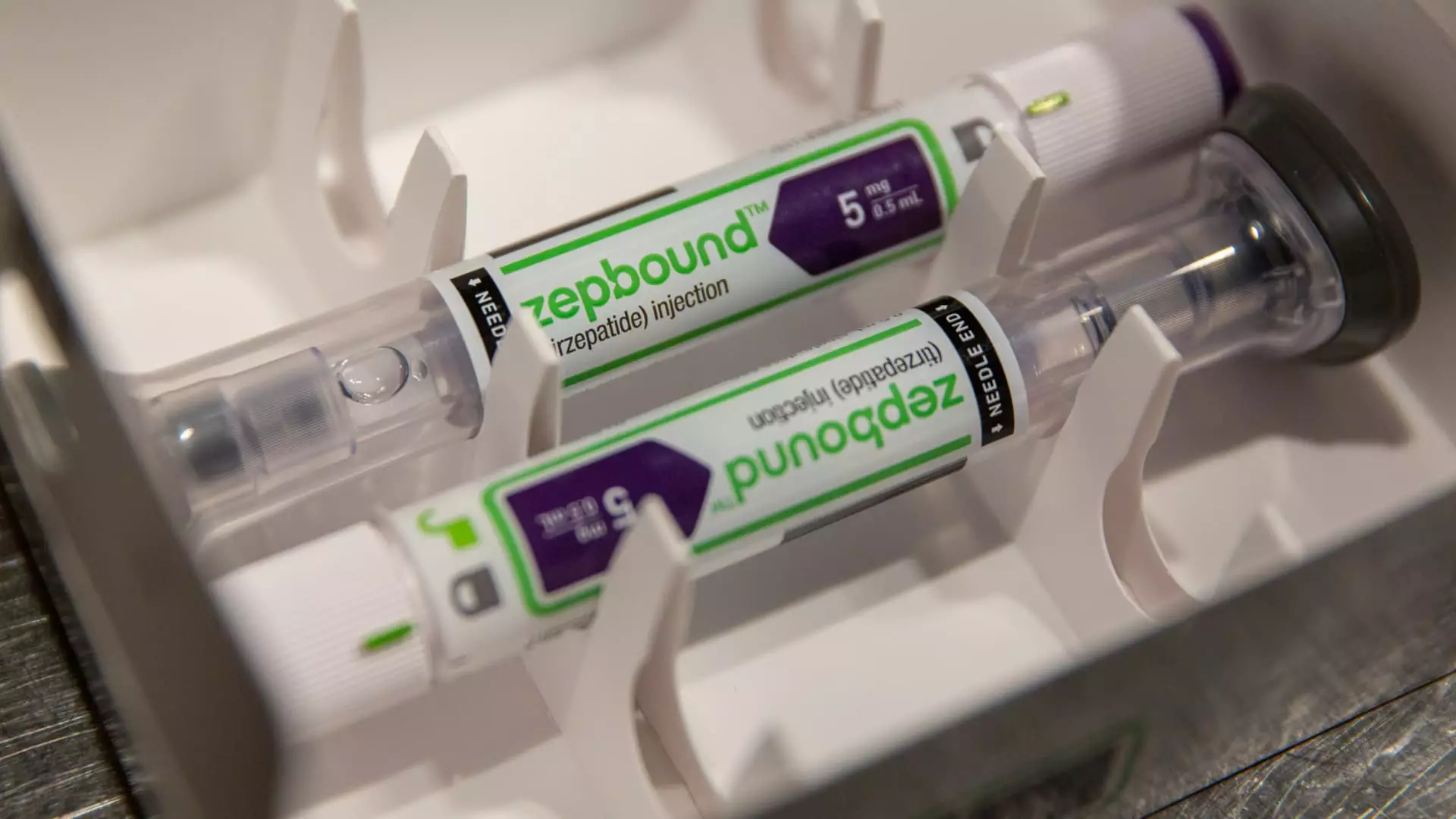Obstructive Sleep Apnea (OSA) is a prevalent yet often underestimated disorder affecting millions of individuals across the United States. Characterized by intermittent disruptions in breathing during sleep due to blocked airways, OSA impacts approximately 80 million people. Alarmingly, out of those afflicted, around 20 million suffer from moderate to severe forms. The reality reveals a stunning statistic: 85% of cases remain undiagnosed, highlighting a significant gap in awareness and treatment. This is especially concerning as OSA can lead to long-term health complications including cardiovascular issues and cognitive dysfunction.
Eli Lilly recently announced that the Food and Drug Administration (FDA) has approved its drug, Zepbound (tirzepatide), for use in individuals with obesity and moderate to severe OSA. This development is groundbreaking as it expands the drug’s application beyond weight management and may enhance its integration into insurance coverage within the U.S. healthcare system. The addition of Zepbound to the therapeutic arsenal against OSA represents a significant step forward in addressing a condition that has long been shrouded in misperceptions and oversimplification. Julie Flygare, CEO of Project Sleep, poignantly noted that OSA is too frequently dismissed as “just snoring.” In reality, it’s a serious medical condition that requires proper diagnosis and effective treatment.
Zepbound acts through the modulation of GLP-1 receptors, similarly to other notable diabetes and weight-loss medications. By targeting these pathways, the drug aims not only to facilitate weight loss but also to mitigate the severity of OSA symptoms. Initial studies have shown promising results: patients receiving Zepbound experienced notable improvements in their apnea-hypopnea index (AHI), which quantifies the frequency of blocked airways during sleep. In the first year of treatment, Zepbound demonstrated efficacy greater than that of placebo treatments, showcasing its potential to bring about significant health improvements for patients who often face limited options.
Eli Lilly anticipates that the second half of 2024 will see Zepbound enter the market for OSA. This timeline is vital, as it enables healthcare providers to introduce new conversations about sleep health—conversations that have been too frequently overlooked. The introduction of Zepbound may catalyze discussions between patients and healthcare professionals, encouraging a more comprehensive assessment of symptoms and treatment strategies. The hope is that with increased awareness and new treatment options, patients can achieve not only improved sleep quality but also overall health benefits.
Traditionally, treatment for obstructive sleep apnea has heavily relied on the use of Continuous Positive Airway Pressure (CPAP) machines, which can be uncomfortable and cumbersome for many patients. Zepbound presents a non-invasive alternative that could alleviate some of the burdens associated with existing therapies. Notably, its chief competitor, Novo Nordisk’s Wegovy, has not received FDA approval for OSA, positioning Zepbound as a unique therapeutic option in a market that has been historically limited.
Moreover, the approval of Zepbound not only augments treatment possibilities but also addresses insurance coverage concerns. Currently, many insurers, including Medicare, have restrictive policies surrounding coverage for anti-obesity medications unless they are demonstrated to have additional health benefits. The expansion of Zepbound into the realm of OSA could alter the landscape for insurance authorization processes, increasing access to essential medications for those in need.
As the medical community prepares for the arrival of Zepbound into sleep health discussions, it’s imperative that patients are educated on the symptoms of OSA and the importance of seeking medical advice. Healthcare professionals should prioritize open dialogues to foster better understanding of the disorder, emphasizing the new avenues available for treatment. Moreover, the emerging evidence of health benefits associated with GLP-1 receptor agonists such as Zepbound necessitates continuous research to evaluate their full potential.
The FDA’s approval of Zepbound is a landmark moment in sleep medicine and obesity treatment, signifying a potential revolution in managing OSA. By fostering awareness, initiating dialogue, and providing innovative treatment options, Eli Lilly’s Zepbound could ultimately lead to a healthier future for millions suffering in silence from obstructive sleep apnea.

